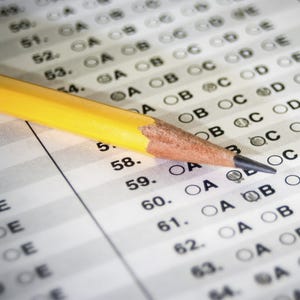Test results don't cure inequity: Opposing view
We need to understand what really works to close opportunity gaps
If taking a patient’s temperature cured disease, the world would be much healthier. Medical professionals will tell you that knowing there’s a fever begs the question: Why? A thorough examination follows, ultimately leading to a diagnosis — which in and of itself — is not a cure.
The same goes for the scourge of inequity in our schools. Some would say the only way to ensure opportunity for all is to focus on standardized test results. But if you listen to the professionals, the educators, we will tell you that it is far from a cure. In fact, we’ll tell you the very same thing — the test results should prompt more involved inquiry.
Yet the results are the basis for critical decisions for our students and their schools. Ultimately, those decisions — punishments of students and schools — have only exacerbated the inequity in the system. It’s akin to knowing there’s a fever and then deciding — based solely on that fever’s presence — to perform surgery.
In too many schools, the pressure to “Make Your Score” has pushed out all semblance of creative learning and critical thinking. Rote memorization becomes more important than problem-solving skills and love of learning that are the seeds of true success. Hardest hit are children who need support the most, those of color and those who live in poverty.
A true cure requires consults with specialists: the professionals who answer the call to educate students. We’ll tell you: A complete measure of student success demands recognizing that standardized tests are only a small part of that picture.
Rather than administering punishments, policymakers must provide all students with what they need — access to nurses, counselors, well-equipped libraries, music and arts, and more. Don’t focus on a single temperature check; also measure what goesinto an education.
That’s why educators are demanding a broader “Opportunity Dashboard” in a new education bill moving through Congress — more inputs to understand what really works to close opportunity gaps. Measurement is one part of a diagnosis for sure, but equal opportunity is the cure.



